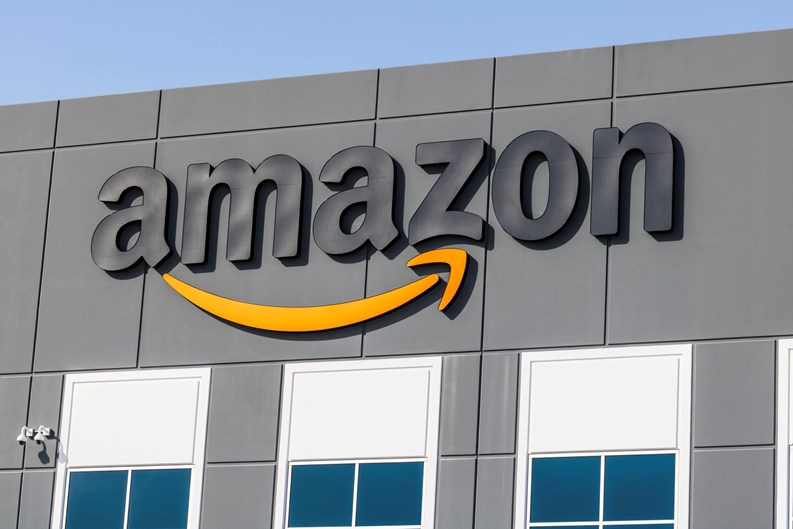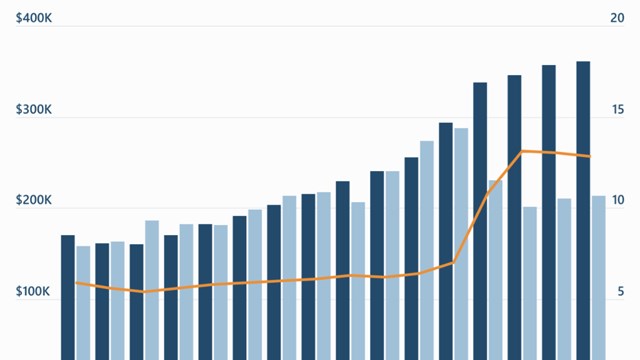Last week, the usually-feuding Gov. Andrew Cuomo and Mayor Bill de Blasio actually agreed on something.
The two appeared at a joint press conference to celebrate a deal to bring Amazon to Long Island City, as part of a long-in-the-works courtship in which cities all across the country made overtures to lure the online shipping monolith to set up shop. Arlington, Virginia – just across the river from Washington, D.C. – emerged as the other winning bidder for an Amazon “HQ2” location.
Amazon's presence in Long Island City is projected to bring 25,000 new jobs to the city, with median salaries of $150,000. “This plan that we all put together, we are convinced is going to benefit everyday New Yorkers in huge numbers – tens of thousands, and it's going to be something that really transforms people's lives,” De Blasio said at the press conference. "A lot of infrastructure spending has already been done in Long Island City. A lot is planned for Long Island City – over $2 billion more will keep coming in as more and more positive development occurs."
But the deal has not been without backlash for an array of reasons, including the near $3 billion that the city and state are giving the retail juggernaut in tax breaks; major transportation concerns; the lack of transparency behind the deal; and the skyrocketing cost of living all over the metro area, including Long Island City.
On Monday, the governor went on the defensive by releasing an op-ed on his website and appearing on WNYC's The Brian Lehrer Show to explain why the deal was good. On the tax break issue, Cuomo said that the city will see $9 in revenue for every dollar given in subsidies. He also said that it would benefit neighboring housing project Queensbridge Houses, where half of the families are unemployed and the average annual income is $24,000. He told Lehrer: “They [Amazon] have made specific representations to partner with the housing complex, to hire from the housing complex.” However, according to a WNYC story, thus far “Amazon has only agreed to hold job fairs and resume workshops at Queensbridge.”
The city's deputy mayor of urban housing and development, Alicia Glen, recently spoke with New York magazine and took a similarly defensive but optimistic view of the deal. She touted Amazon's track record of hiring immigrants and women, and claimed that the city's proven commitment toward affordable housing will see to it that its housing priorities won't be influenced by the influx of Amazon-related capital.
Some New York-area politicians, however, are not enthused about Amazon’s arrival. Among them is Democratic Congresswoman-elect Alexandria Ocasio-Cortez, who will represent the 14th congressional district that includes parts of Queens and Bronx. Affordable housing has been a major issue in the city, and Long Island City has experienced a growth of residential development, including condos, with the result being higher housing prices. Ocasio-Cortez recently tweeted: "Displacement is not community development. Investing in luxury condos is not the same thing as investing in people and families. Shuffling working class people out of a community does not improve their quality of life."
A Real Estate Perspective
From a purely residential real estate standpoint, there's reason to be optimistic, according to Robert Whalen, Director of Sales in Long Island City for real estate company Halstead.
“I've lived in Long Island City since 2007, so I've seen the pieces that have been leading up to [this Amazon deal] fall into place,” he says. “I think that it's a fantastic opportunity for the community and investors. If I'm surprised by anything, it's how quick the response has been, and how quickly things have gone from somewhat of a lull across the city to this major New York City real estate moment. While there had been steady interest in the area, some buyers seemed to be uneasy about making the plunge, and I've been pleasantly surprised at the way this news has gotten people off the fence, to make offers, to get contracts out there.”
As far as housing costs, Whalen acknowledges that the Amazon deal will cause prices to go up. “But a lot of new construction has components set aside to reflect that not everyone is seeing incomes increased in accordance with price spikes in their neighborhoods,” he notes. “And that's always been the story in New York City throughout history. I think that, on the positive side, there's greater sensitivity to [housing affordability] then there had been in years past. So there will be challenges, and I think it's healthy for us to be aware of them and to understand how we can mitigate them in some of those communities that are not exactly in the higher income brackets.”
And Whalen is hopeful that an influx of white-collar jobs can still be a boon to more blue-collar areas. “Those 25,000 new jobs... those new people coming in and out of the neighborhood every day are going to lunch, going to drinks, going to markets, and those places that spring up will provide more jobs, other ancillary business,” he speculates. “The Amazon jobs are great, but things don't stop there. The jobs that spring up around them are equally important. This whole situation has to grow and reach across the city and provide opportunities across the spectrum of income, or else it isn't going to work. And I think that's why you hear some local politicians concerned that this will be some corporate giveaway boondoggle. But I don't think it will be.”
Mike Odenthal is a staff writer at The Cooperator.







Leave a Comment